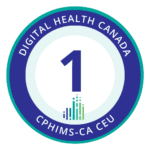Webinar Wednesday – Advancing Paramedic Training and Assessment through Virtual Reality: Saskatchewan’s College of Paramedics VAPOC Project
There is a paramedic shortage in Saskatchewan. The Government of Saskatchewan has allocated $10.8 million in the 2022-23 budget to fill more Emergency Medical Services positions, mainly in rural and remote areas. However, barriers to licensure limit workforce supply. Paramedic assessments are limited to on-site evaluation, posing undue burden and financial risk to applicants, especially foreign-trained ones.
Community paramedics, who deliver short-term care for low-acuity illnesses, alleviate pressure on ER wait times and hospital beds but constitute less than 1% of all licensed paramedics in Saskatchewan. The urgency due to COVID-19 has opened a policy window for innovation and regulatory change in virtual technology for education and licensure. One promising innovation is virtual reality (VR) simulation.
The Saskatchewan College of Paramedics has developed high-fidelity VR simulations that assess 70% of the competencies required for entry to practice. However, VR use in regulatory contexts is a new concept that warrants further exploration. Our research team has been evaluating its usability and potential applications for regulatory purposes.
This webinar aims to present preliminary findings from two innovative projects leveraging VR technology to enhance paramedic training and assessment in Saskatchewan. We will explore future directions involving engagement with regulators on recognizing VR as an acceptable practice.
Speakers
-
Ramona Kyabaggu
Assistant Professor of Health Informatics and Information Management, Johnson Shoyama Graduate School of Public Policy, University of Regina
Read More
Ramona Kyabaggu (CHIM) earned a BHSc in Health Information Management and an MSc in Information Sciences from The University of Western Ontario, Canada. She also holds an MSc in Epidemiology from the University of Aberdeen, UK, where she focused on digital epidemiology in pain research. Currently, she is completing her PhD studies in Public Health at the University of Saskatchewan’s School of Public Health, focusing on e-prescribing implementation. Her research evaluates implementation context factors for safe and adequate prescribing of controlled substances as a supply-side intervention to address the drug toxicity crisis. She is also currently an assistant professor of Health Informatics and Information Management at the Johnson Shoyama Graduate School of Public Policy, Canada.
Read Less
-

Jacqueline Messer-Lepage
Executive Director and Registrar, Saskatchewan College of Paramedics
Read More
Jacqueline Messer-Lepage is the Executive Director and Registrar with the Saskatchewan College of Paramedics. She holds an undergraduate degree in Medical Laboratory Technology, a Master of Business Administration, an Advanced Graduate Diploma in Management, and credentials in Project Management and Mediation. In 2019, Jacquie became a certified coach in EQi 2.0 and EQi 360, and currently provides personalized coaching in the areas of leadership and emotional intelligence.
During her years with government, Jacquie worked in a number of areas including Executive Council as the Executive Director of International Relations and with the Ministry of Health as Chief Privacy Officer and Executive Director of the Risk and Relationship Management Branch. Her responsibilities spanned diverse portfolios including: International Engagement Strategy, Labour Relations, Provincial Health Policy and Governance, First Nations and Metis Relations, Legislation and Bylaws, and Health Emergency Management. In addition to her current role, Jacquie is involved in international standards development with the Canadian Standards Association and Health Standards Organization and teaches with the University of Regina in their non-credit area.
Read Less





